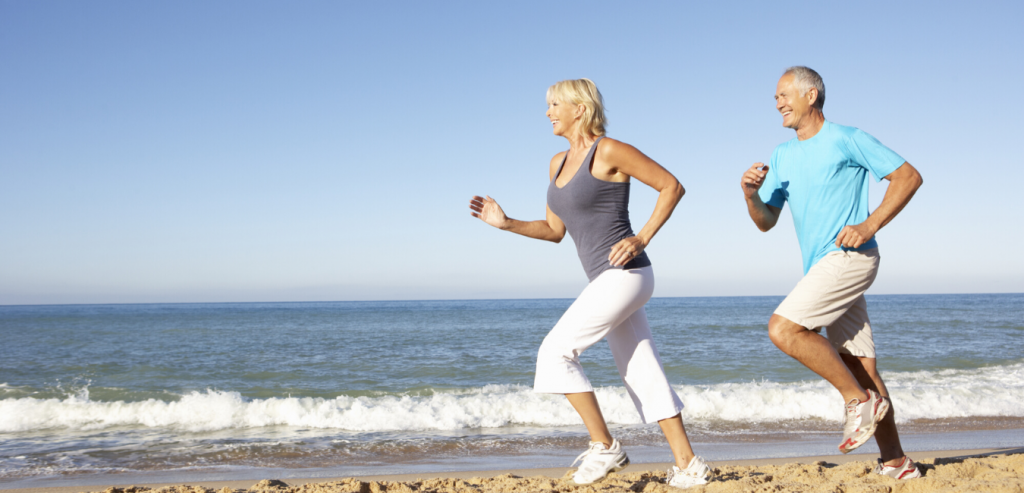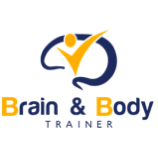IT IS TOO HARD TO GET BACK UP!
Life is like walking into a cold lake, it starts shallow, and you enjoy the feel of water on your feet. The sensations you feel are pleasant and walking barefoot is always refreshing. But as you progress and it gets harder to walk, water is resisting your pace; more effort is needed if you want to proceed. The water may not feel so good anymore – it is more tiring, and you need to be cautious where you step. If water is freezing, it’s more difficult to breathe, and you have no choice but to stay calm, breath until you get to the point you can’t reach the bottom of the lake and you have to start the swim.
The swim represents the ability to enjoy the second half of your life without pain, disease and dependency on prescription drugs. Almost everything gets harder as we age, and many of an older generation still believe that by a certain age, quality of life goes down, and it’s often too difficult to reverse.
It can be difficult I agree, from what I’ve seen working as a coach and PT with more than thirty clients over age 50 – it is not impossible! Prevention is always better than cure.
Not recognising the fact that day to day function inevitably declines after a certain age is a big mistake what many people do in their 30s. Several fifty years old gym newbies told me they wish they have started exercising earlier.
Identify how you want to feel in your body when you get older, how do you want to look like? But more importantly WHY you want to feel and look that way? Once you become clear on that, adhering your fitness program will be much easier!

YOUR BRAIN
It all starts here. What is more important to you?
- Drink a glass of wine every day after work to ‘relax’ or minimise the risk of liver cirrhosis or other nasty health implication?
- Eat cake after dinner because it tastes good or hearth attack or diabetes in your 60s?
I’ll let you answer that hoping you can see my point.
Everything you do matters, especially what you do without much thinking – habits.
Habits are formed in an area of your brain called the basal ganglia. The more often you do an action or behave a certain way, the more it gets physically wired into this area of your brain and harder it its to break.
Habits are often caught from family members, peers, or spouse, it’s not always your fault that you have bad habits. But it is your responsibility to make them your best ally, so you can enjoy the fruits of your hard lifetime work for years and maybe play with your grandchildren one day rather than just watching them play from wheelchair.
YOUR BODY
The ONLY place you have to live for the rest of your life!
Don’t like yours? You have two options.
Option 1:
Blaming and complaining about how busy life is and that you have bad genes, healthy food is too expensive, the gym is too far or similar BS. You can’t go far with this mindset; continue and you will be unhappy about everything related your body, from buying clothes to taking holiday pictures. If you don’t like it, chagne something!
Option 2:
Grow your mindset by a notch, be more grateful for the fact you have two arms, two legs and can move without pain. Do you have it? Great! Your body is already perfect! Small tweaks like dropping fat or building some muscles are much easier once you love your body for what it already is!
YOUR EXERCISE ROUTINE
The older you get, the more you need to focus on preserving and developing muscle mass and strength. Why?
Weaker muscles mean less strength, balance, and mobility, all of which can increase the risk of falls and fractures in older age. A study published in the Journal of Applied Physiology found through whole-body MRI scan interesting findings:
Around 30 – 40% of a healthy person’s body mass is made up of skeletal muscles.
After age 30, we begin to lose as much as 3-5% per decade, and after age 45, this decrease can be even more dramatic!
This condition is called sarcopenia. Sarcopenia is the degenerative loss of skeletal muscle mass, quality, and strength associated with ageing.
The rate of muscle loss is determined mainly by exercise level and eating habits. Inactivity equals deterioration.
If we do not use skeletal muscles frequently, we lose it. Chronic stress and dieting, overuse of cardio and lack of protein in a diet can speed up the progress of sarcopenia.
“Take care of your body, no matter your age, it’s an investment.” Oprah Winfrey
Marian









